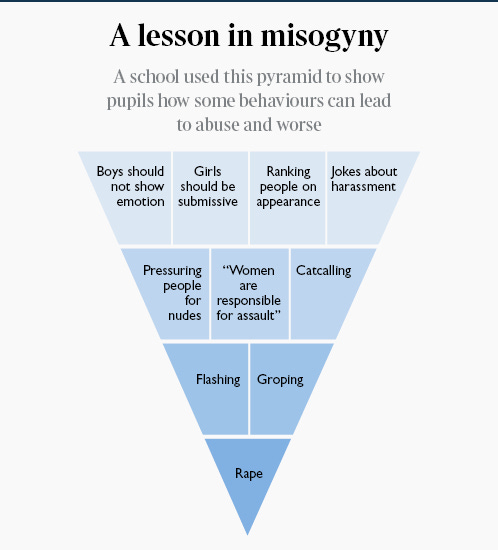Lately we’ve been tap dancing up to even heavier gear [for Ukraine]. The US has announced we’ll be sending some M2 Bradley IFVs, and France chipped in some AMX-10 RC heavy armored cars. While referred to as a char, or tank, in French service and apparently some obscure EU regulation classifies anything above a certain weight and with a big enough gun as a tank … and the AMX-10 clears those hurdles … war nerds will insist that unless it comes from the tank region of France it’s just a sparkling armored fighting vehicle.
It looks like the inhibition on sending tanks is finally cracking, though. While Germany is still dithering over letting Poland send some of its Leopard 2’s, Britain has announced it’s sending 14 Challenger 2 main battle tanks.
I found that particular number interesting. Late Cold War and post-Cold War Russian armored units use three-tank platoons and three platoons plus a commander’s tank make a ten tank company.
The British Army, from whose stores the Challengers will be pulled, uses some archaic TO&E, possibly left over from the Wars of the Roses or Cromwell’s New Model Army, wherein four tanks equal a Bonnet*, and four Bonnets plus two more tanks in a headquarters Bonnet equal an eighteen-tank Spanner†.
Fourteen tanks, however, is enough for three four-tank platoons plus two tanks for an HQ platoon, equalling a fourteen tank US-style armored company. Apparently the Ukies are using a US/(most of)NATO TO&E for their armored units. So the Ukrainians will have at least one company of Western MBTs.
* Bonnet = Troop
† Spanner = SquadronTamara Keel, “Clank Clank Goes the Tank”, View From The Porch, 2023-01-15.
January 18, 2023
QotD: Tanks for Ukraine?
January 17, 2023
“Karl Marx was one hollow and rotten tree, inside and out, from beginning to end”
To mark the passing of Paul Johnson, the Foundation for Economic Education reposted an appreciation of Johnson’s Intellectuals by Lawrence W. Reed praising his essay on Karl Marx:
None of Johnson’s subjects can match Karl Marx for sheer loathsomeness and shameless fakery. He was a virulent racist and anti-Semite with a vicious temper (“Jewish n****r” was one of his favorite epithets). On a good day, he enjoyed threatening those who disagreed with him by blurting, “I will annihilate you!” His personal hygiene was, well, suffice it to say he had none. He was heartlessly cruel to his family and anyone who crossed him. This is the same man who postured as a thinker whose ideas would save humanity.
We learn in Intellectuals that the chef who cooked up communism professed to be “scientific”. In reality, Johnson argues, “there was nothing scientific about him; indeed, in all that matters he was anti-scientific”. His most famous lines — including “religion is the opiate of the masses” and workers “have nothing to lose but their chains” — were flagrantly ripped off from other authors. He “never set foot in a mill, factory, mine or other industrial workplace in the whole of his life”, steadfastly abjured invitations to do so, and denounced fellow revolutionaries who did. He never let a fact or a glimmer of reality stem the flow of poison from his pen. He had no money because he refused to work for it, then cursed those who had it and didn’t share it with him. His own mother said she wished her son “would accumulate some capital instead of just writing about it”.
And that’s for starters. Read Johnson’s chapter on Marx, and you’ll begin to understand the connection between the evil within the man and the evil his gibberish wrought. The Black Book of Communism estimates the death toll from attempts to put the rantings of this detestable lunatic into practice at minimally 100 million.
“What emerges from a reading of Capital is Marx’s fundamental failure to understand capitalism”, writes Johnson.
He failed precisely because he was unscientific: he would not investigate the facts himself, or use objectively the facts investigated by others. From start to finish, not just Capital but all his work reflects a disregard for truth which at times amounts to contempt. That is the primary reason why Marxism, as a system, cannot produce the results claimed for it; and to call it “scientific” is preposterous.
Many people who don’t know better, and an awful lot of those in “intellectual” circles who should, still think Karl Marx was some sort of prescient genius motivated by compassion for workers. Some even disgrace themselves with T-shirts bearing his unkempt image. They really ought to thank Paul Johnson for doing the thinking they themselves never made time for.
Actually, we were warned about people like Marx 2,000 years before Johnson. Matthew 7:16 wisely counsels:
Beware of false prophets. They come to you in sheep’s clothing, but inwardly they are ravenous wolves. By their fruit you will know them. Are grapes gathered from thornbushes, or figs from thistles? Likewise, every good tree bears good fruit, but a bad tree bears bad fruit.
Karl Marx was one hollow and rotten tree, inside and out, from beginning to end.
The Early Emperors, Part 11 – The Flavian Reconstruction
seangabb
Published 29 Dec 2022This is a video record of a lecture given by Sean Gabb, in which he discusses the three Flavian Emperors who ruled between 69 and 98 AD — Vespasian, Titus, and Domitian. He also discusses the Jewish Revolt and the eruption of Vesuvius.
The Roman Empire was the last and the greatest of the ancient empires. It is the origin from which springs the history of Western Europe and those nations that descend from Western Europe.
(more…)
How ideological programming in British schools make men like Andrew Tate inevitable
To be honest, I don’t think I’d ever heard of Andrew Tate before his legal troubles in Romania hit the headlines, and I’m not well-versed on his achievements (such as they might be). Janice Fiamengo also admits that Tate wasn’t on her radar before then, but she’s done some work to try to put him into perspective:
What has Tate got to do with UK education, except perhaps as a telling symbol of its unintended consequences? Why not just model and enforce ideals such as courtesy, self-restraint, and hard work, while upholding high academic standards? The article demonstrates how deeply committed schools have become to ideological programming. Some schools have drawn up “entire lessons focused on Tate” (!!!) while others deal more generally with “misogyny and gender stereotypes”. Whatever the particulars, the general message is unvarying: “We’ve all got to work collaboratively and collectively to support young men to reframe masculinity—away from this toxic ideology that’s presented by the likes of Tate.”
No one who’s been following the feminist narrative over the past decade or two will be surprised by the dogmatic reference to “toxic ideology,” now standard in any discussion of “reframing” boyhood. There is just one problem for the concerned teachers: Tate is five steps ahead of them, having already made clear to his millions of followers why injunctions about “reframing masculinity” are just code for the continual marginalization that most boys naturally want nothing to do with. The moment Tate and his allies expressed their scorn for the project, it lost its power overs the millions of boys forced to sit in feminist classrooms across the UK. Tate confirmed what boys intuitively knew: having their masculinity “reframed” will prevent them from pursuing masculine dreams, from being proud of themselves as male, admired by their male peers, and able to attract the interest of pretty girls. Teachers can keep on telling boys that peer approval through masculine moxy isn’t important, but that won’t make it true.
The point is not whether Tate’s (“I’ve got 33 cars“) program is an unalloyedly good one; the point is that it is manifestly better than the recipe for self-loathing and irrelevance being offered by the schools. The school’s program is the same that has been tried for years without any enthusiastic uptake because it offers nothing affirmatively male for young men to be and do (see especially White Ribbon UK, which has been trying for years to turn boys into handmaidens of feminism). All the normal things that centuries of boys in every major civilization on earth have cared about—competitiveness, status, toughness, mastery, knowledge, self-reliance, stoicism, high-jinks, displays of ability, and male bonding—are now frowned upon and must be replaced by feminine traits like empathy, egalitarianism, conformity, verbal display, and tone-policing. It doesn’t take a gender studies specialist to see that the life being offered these boys is one of deference, self-suppression, and self-contempt. No boy should want that.
In case you doubt my characterization, take a look at the Global Boyhood Initiative’s report on The State of UK Boys: Understanding and Transforming Gender in the Lives of UK Boys, published in 2022. The report was written for “teachers, youth workers, early-years practitioners and other professionals” to achieve “gender equity and social justice”.
Incidentally, the report includes a section attacking an alleged “overemphasis” on research showing boys and men as victims of intimate partner violence by women. While the report enthusiastically promotes the end of “gender” through transgenderism and social constructivism, it emphatically does not support the end of gendered norms about which sex is violent. On this front, the report laments that “even young boys” now believe that male persons can be victimized by female persons, citing the case of Johnny Depp’s abuse by Amber Heard. Nothing could more clearly signal the report authors’ chagrined awareness of the difficulty of controlling boys’ thoughts in the internet age.
The rest of the report explores pathways to weaken masculinity. On a number of occasions, it takes aim at “simplistic notions that boys require male ‘role models'” because such notions “frame women as inadequate to parent and teach boys”. Taking for granted that “gender is not tied to sex organs, hormones, or biological traits” (one wonders, then, why trans persons elect to take hormones and to change their sex organs), the emphasis throughout the report is on “realigning” masculinity to highlight gender fluidity, transgenderism, and inclusion of girls. The document has absolutely nothing good to say about masculinity, which it describes, variously, as “a seductive form of power”, “hegemonic”, and “oppressive”. It even uses the derogatory term “boysplaining” to stigmatize boys’ alleged way of talking.
Even such seemingly benign behaviors as “laughter, banter, and entertaining one another” are said to be “laddish” and linked to the exclusion of women and homosexuals. Taking pleasure in being good at sport is also given a negative valence by being associated with bullying.
As in all such feminist propaganda, the report seeks the evacuation of all positive content from masculinity. “Realigned” boys are to anchor their sense of self mainly in not being what boys have always been. They are to shun the allegedly “hegemonic” characteristics of “physical, sexual, and mental prowess; being action-oriented; ‘knowing’; having autonomy […]; and being emotionally tough.” It is surely no coincidence that modern boys and young men have fallen well behind their female peers in educational attainment, economic status, and performance on the job market. “Prowess” is out, knowing is out, being active is out, toughness is out. No wonder so many boys feel lost, disaffected, and resentful, and no wonder some see Andrew Tate as a hero.
Growing an Ancient Roman Garden
Tasting History with Max Miller
Published 23 Aug 2022
January 16, 2023
Paul Johnson on Jean-Jacques Rousseau
The book Paul Johnson may best be known for is Intellectuals, an essay collection highly critical of many of the “great men” of intellectual history. Birth of the Modern, the first Johnson book I read, was also skeptical of the bright lights of European intellectualism, but Intellectuals is where he concentrated on the biographical details of many of them. Ed West selected some of Johnson’s essay on Jean-Jacques Rousseau as part of his obituary post:
… Johnson is best known to many for his history books, one of the most entertaining being Intellectuals. Published in 1989 and structured as a series of – very critical – biographies of great philosophers, poets, playwrights and novelists, Johnson’s book got to the essence of the intellectual mindset in all its worst aspects: their intense selfishness and narcissism, their callousness towards friends and lovers, and their fondness for giving moral support to some of the worst ideas and regimes in history.
One of the most prominent Catholics in British journalism, Johnson saw secular intellectuals as modern successors to the theologians of the medieval Church, the difference being that, without the restraints of religious institutions, their egotism was uncontrolled.
Writers and artists are often incredibly selfish people, and this is true across the political spectrum, but of course it’s far more satisfying to read about those men who claimed to be the saviour of the poor and humble yet were so relentlessly horrible to actual people around them. That’s what makes the book – published just as the system imagined by one of its subjects came crashing down in eastern Europe – so satisfying.
One of the targets, er, I mean “subjects” of Intellectuals was Jean-Jacques Rousseau, who was quite the piece of work indeed:
It begins with Jean-Jacques Rousseau, the “first of the modern intellectuals” and perhaps the subject of Johnson’s most intense vitriol.
“Older men like Voltaire had started the work of demolishing the altars and enthroning reason,” he wrote: “But Rousseau was the first to combine all the salient characteristics of the modern Promethean: the assertion of his right to reject the existing order in its entirety; confidence in his capacity to refashion it from the bottom in accordance with principles of his own devising belief that this could be achieved by the political process; and, not least, recognition of the huge part instinct, intuition and impulse play in human conduct.
“He believed he had a unique love for humanity and had been endowed with unprecedented gifts and insights to increase its felicity.” He was also an appalling human being.
[…]
Madame Louise d’Épinay, a lover who he treated terribly, said “I still feel moved by the simple and original way in which he recounted his misfortunes”. Another mistress, Madame de Warens, effectively supported him in hard times but, when she fell into destitution, he did nothing to prevent her dying of malnutrition.
Rousseau had a “pseudo-wedding” with his mistress Therese Levasseur where he gave a speech about himself, saying there would be statues erected to him one day and “it will then be no empty honour to have been a friend of Jean-Jacques Rousseau”. He later accused her brother of stealing his 42 fine shirts and when he had guests for dinner she was not allowed to sit down. He praised her as “a simple girl without flirtatiousness”, “timorous and easily dominated”.This easily-dominated woman gave birth to five of his children, whom he had sent to an orphanage where two-thirds of babies died within the first year and just one in 20 reached adulthood, usually becoming beggars. He made almost no attempt to ever track them down, and said having children was “an inconvenience”.
“How could I achieve the tranquillity of mind necessary for my work, my garret filled with domestic cares and the noise of children?” He would have been forced to do degrading work “to all those infamous acts which fill me with such justified horror”.
He was spared that horror and instead given time to develop his ideas, which were fashionable, attractive and completely unworkable. “The fruits of the earth belong to us all, the earth itself to none”, he said, and hoped that “the rich and the privileged would be replaced by the state which reflected the general will”.
What would this mean in practice? “The people making laws for itself cannot be unjust … The general will is always righteous”.
Despite his ideas veering between woeful naivety and sinister authoritarianism, they proved hugely popular, especially with the men and women who in 1789, just a decade after his death, would bring France’s old regime crashing down — with horrific consequences. As Thomas Carlyle famously said of Rousseau’s The Social Contract: “The second edition was bound in the skins of those who had laughed at the first.”
Rousseau was perhaps the most influential figure of the modern era. In particular his rejection of original sin would become far more popular in the late 20th century; indeed it is at the core of what we call the culture war, and its fundamental conflict over human nature.
The music industry fails to capitalize on the vinyl revival
It’s kind of hard to believe, but the companies that control the pressing of music into vinyl appear to have no clue about the business they’re in:

“Framed Vinyl Album Art: America ‘Homecoming’; Nick Gilder (Studio Copy of Singles From ‘City Lights’ Chosen for AOR); Climax Blues Band ‘FM Live’)” by JoeInSouthernCA is licensed under CC BY-ND 2.0
I’d heard so many grand claims for the vinyl resurgence, but the reality was tremendously disappointing. And I was a late adopter — the revival had been going on for a decade, but record labels still didn’t have their act together.
In my case, I ended up buying vinyl albums, but mostly used ones. I simply couldn’t find new pressings of the records I wanted. This was fine for me, but lousy for musicians and labels — who make no money on the sale of a secondhand vinyl album.
I have some experience in these matters — in my alternative career I worked with CEOs chasing after fast growth product categories. I know how they handle these situations. But, really, it’s no mystery. The strategies you use in this kind of business are very straightforward:
- You add manufacturing capacity aggressively — to make sure you have enough product to fuel growth.
- You bring down costs by getting scale advantages. But this only happens because unit costs drop as volume increases. So the single biggest goal is to grow sales as hard and fast as possible.
- You constantly reduce prices to keep demand building. In some cases, you even set prices below your costs to accelerate growth rates. When I originally saw companies do this I was skeptical — how can you make profits if you sell below your costs? But I soon learned that you eventually got a huge payback.
- You keep expanding the product line, so that you constantly have something new and exciting to sell to every potential buyer.
- You invest in R&D so that you eventually have a next generation technology to keep the growth going over the long haul.
None of this is easy to do, but it isn’t impossible. It just takes investment, focus, management commitment, and hard work. And later you reap the benefits. You turn a small business into a huge one, and enjoy a big payday.
The record labels could have done that with vinyl. It was taking off — unit sales doubled in just 5 years. And these sales were insanely profitable, because much of the demand was for old music. So labels didn’t even have to pay to sign artists, and cover the costs of recording sessions. The music was already there, with the fixed costs amortized long ago.
They just had to press the bloody album and ship it to the store. How hard is that?
But what did the music industry do?
- They hate running factories — which is hard work. So they tried to outsource manufacturing instead of building it themselves. Chronic shortages resulted.
- They refuse to spend money on R&D, so they stayed with the same vinyl technology from the 1950s. In other words, the record business became the only entertainment industry in the world with no plan for technological innovation. In the year 2023, even bowling alleys, bordellos, and bookies are more tech savvy than the major record labels.
- They want easy money, so they kept prices extremely high. That was bizarre because their R&D and catalog acquisition costs were essentially zero, and they could have priced vinyl aggressively. Instead they treated vinyl as a luxury product, even as they dreamed of it also becoming a mass market option. But you can’t do both without a careful market segmentation strategy — which the labels never even started thinking about.
- They love hype, so they focused on high visibility vinyl reissues, which look good in press releases, but couldn’t be bothered to make back catalog albums available. After a decade of the vinyl revival, they still hadn’t taken even basic steps in offering a wide product line.
This is a lazy strategy — and the exact opposite of what they should have done. And the results are, of course, predictable.
“The Commission has no power to find liability. Its report will not bind the government”
Donna Laframboise continues to cover the Emergencies Act inquiry submissions, including one from Queen’s University law professor Bruce Pardy:

A screenshot from a YouTube video showing the protest in front of Parliament in Ottawa on 30 January, 2022.
Photo via Wikimedia Commons.
Shortly after the Emergencies Act commission finished listening to witnesses, he authored a grim opinion piece in the Toronto Sun.
His expectations are exceedingly low. In his words, the commission’s
mandate is not to rule on the legality of the government’s actions but to inquire into “the circumstances that led to the declaration being issued and the measures taken for dealing with the emergency”. The Commission has no power to find liability. Its report will not bind the government. The Commission is ritual, and the purpose of ritual is performance not outcome – to make it appear that there is accountability without having to provide it. [bold added]
Let us hope he’s mistaken, and that Commissioner Paul Rouleau has a pleasant surprise in store for us. Whatever happens, Pardy’s article provides a useful history lesson. It describes the series of events that prompted the use of similar legislation the last time around:
Between 1963 and 1970, the Front de libération du Québec (FLQ) committed hundreds of bombings and several robberies, killing six people, including Quebec deputy premier Pierre Laporte. In response, Pierre Trudeau’s government invoked the War Measures Act.
Six murders – including the politically motivated kidnapping and execution of a deputy premier. Seven years of violence. Hundreds of bombings. Compare and contrast to the three-week festive, bouncy-castle, hot-tub trucker protest in which not a single person was robbed, bombed, or murdered.
Times sure have changed. Today, the same Canadian federal government that talks constantly about equity, diversity, and inclusion failed to do a single thing to make the protesting truckers feel as though their concerns, perspectives, or lives mattered. Diversity is something the government preaches, but doesn’t practice. Disagree with the Prime Minister and you’re a fringe minority with unacceptable views. Inclusion is a fancy word that makes politicians feel good about themselves, but it isn’t a principle that informs their actual behavour.
I thought the treadmill crane was fictional
Tom Scott
Published 26 Sep 2022The treadwheel crane, or treadmill crane, sounds like something from Astérix or the Flintstones. But at Guédelon in France, not only do they have one: they’re using it to help build their brand new castle.
▪ More about Guédelon: https://www.guedelon.fr/
(more…)
QotD: The avant-garde
There is no more evanescent quality than modernity, a rather obvious or even banal observation whose import those who take pride in their own modernity nevertheless contrive to ignore. Having reached the pinnacle of human achievement by living in the present rather than in the past, they assume that nothing will change after them; and they also assume that the latest is the best. It is difficult to think of a shallower outlook.
Of course, in certain fields the latest is inclined to be best. For example, no one would wish to be treated surgically using the methods of Sir Astley Cooper: but if we want modern treatment, it is not because it is modern but because it better as gauged by pretty obvious criteria. If it were worse (as very occasionally it is), we should not want it, however modern it were.
Alas, the idea of progress has infected important spheres in which it has no proper application, particularly the arts. It is difficult to overestimate the damage that the gimcrack notion of teleology inhering in artistic endeavour has inflicted on all the arts, exemplified by the use of the term avant-garde: as if artists were, or ought to be, soldiers marching in unison to a predetermined destination. If I had the power to expunge a single expression from the vocabulary art criticism, it would be avant-garde.
Theodore Dalrymple, “Architectural Dystopia: A Book Review”, New English Review, 2018-10-04.
January 15, 2023
One last dance for Davos?
Elizabeth Nickson on the “walls closing in” but this time it isn’t “on Trump”, but it might be “on the World Economic Forum” and their enablers:
Klaus and his gang were in full egomaniacal flight last week in Davos. I wonder how secretly scared they were, swanning around in their $30,000 Loro Piana topcoats dreaming of what … a nice quiet prison? Their liability for this latest attempt to escape the whirlwind through forced pharmaceuticals and the construction of the Biomedical Security State, must be dawning on them. It was always a possibility, but they figured the populace — thanks to their equally witless behaviourists — were so dumb they’d consent to being permanently damaged and think it was the fault of the extreme right. And climate change.
[…]
In Australia, the more Covid shots you’ve had, the more Covid you get and the more you die. The unvaccinated sail by relatively unperturbed.
Did you know that Big Pharma takes between $8 to $10 Trillion out of the US economy every year? GDP is only $23 Trillion. That’s a lot of money to claw back by every injured person, every family who lost a wage earner, a mother, a treasured child. This is a profit center for the great unwashed unmatched in human history. A massive transfer of wealth from the .01% to us.
They are all liable: every executive, every celebrity, every film producer, every hospital chief, every newspaper publisher, every television station owner, every multinational media company, every medical center, every university, every employer, every politician who forced and bullied people. Their wealth is about to become ours.
Time to Liberate Leningrad! – Ep 229 – January 14, 1944
World War Two
Published 14 Jan 2023Three Soviet Fronts launch major offensives to try and finally free Leningrad, under siege for nearly two and a half years now. The Soviets are, in fact, making attacks along most of the Eastern Front. In the South Pacific, the Allies step up their aerial assault to wreck Rabaul’s air power, thus neutralizing it as a base.
(more…)
“Zoomers and Millennials are further to the left to begin with and, more critically, don’t seem to be moving rightward as they age”
Andrew Sullivan on the significant leftward orientation of younger Millennials and Gen Z’ers which does not track to historical models of political belief:

“Millennials” by EpicTop10.com is licensed under CC BY 2.0
It’s dawning on many on the political center and right that the current younger generation in America is not like previous younger generations. They’re immaturing with age. Zoomers and Millennials are further to the left to begin with and, more critically, don’t seem to be moving rightward as they age. A recent, viral piece in the FT added a new spark to the conversation, arguing that if Millennials matured like previous generations, then by the age of 35, they
should be around five points less conservative than the national average, and can be relied upon to gradually become more conservative. In fact, they’re more like 15 points less conservative, and in both Britain and the US are by far the least conservative 35-year-olds in recorded history … millennials have developed different values to previous generations, shaped by experiences unique to them, and they do not feel conservatives share these.
And the key experiences, it seems to me, are: entering the job market in the wake of the financial crisis; being poorer than your parents when they were the same age; lacking access to affordable housing and childcare; growing up in a far more multiracial and multicultural world than anyone before them; seeing gay equality come to marriage and the military; experiencing the first black president and nearly the first woman; and the psychological and cultural impact of Trump and Brexit.
These are all 21st century phenomena — and simply not experienced by the generations immediately before them. Socially and culturally more diverse, the young are also understandably down on the catastrophic success of neoliberal economics. So of course they are going to be different. When it was their turn on the wealth escalator, it essentially stopped.
Sometimes we forget that these deep factors are what are most seriously in play. And the biggest mistake many of us on the center or right tend to make is assuming that all of the young’s stickier leftiness — especially the most irritating varieties of it — are entirely a function of woke brainwashing, and not related to genuinely unique challenges. A lot is — the indoctrination is real and relentless — but a lot isn’t. And it’s vital to distinguish the two.
The left’s advantage is that they have directly addressed this generation’s challenges, and the right simply hasn’t. The woke, however misguided, are addressing the inevitable cultural and social challenges of a majority-minority generation; and the socialists have long been addressing the soaring inequality that neoliberalism has created. Meanwhile, the right has too often ducked these substantive issues or rested on cheap culture-war populism as a diversionary response. I don’t believe that the young are inherently as left as they currently are. It’s just that the right hasn’t offered them an appealing enough alternative that is actually relevant to them.
That doesn’t mean cringe pandering. It means smarter policies. Some obvious options: encourage much more house-building with YIMBY-style deregulation; expand access to childcare for young, struggling families; tout entrepreneurial and scientific innovation to tackle climate change; expand maternity and paternity leave; redistribute wealth from the super-rich to working Americans to stabilize society and prevent capitalism from undoing itself; and, above all, celebrate a diverse society — and the unique individuals and interactions that make it so dynamic and life-giving.
How Lea & Perrins Makes Worcestershire Sauce Using A 185-Year-Old Recipe | Regional Eats
Food Insider
Published 25 Dec 2019We visited Lea & Perrins factory in Worcester to see how they produce their ever-popular Worcestershire sauce.
(more…)










